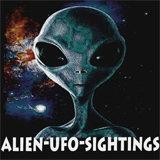Credibility vs. Amateurism
Today, UFO book publishing is defined by traditional houses (St. Martin’s, Tor, Haynes, Schiffer, Little Brown, et al.); specialty small presses (Feral House, History Press, Disinformation Books, Adventures Unlimited Press, New Page Books, et al.); e-books (many issued by Amazon Digital Services); and self- published books (Amazon’s CreateSpace Independent Publishing is the choice of many amateur and semi-professional writers).
UFO books discussed beyond the boundaries of the UFO community are the work of established writers (Whitley Strieber’s clever, purportedly fact-inspired 2006 novel The Grays received fairly wide and enthusiastic critical coverage); or authors with points of view that demand to be discussed in the mainstream (such as investigative reporter Annie Jacobsen, whose 2011 book Area 51 astounded critics with a jaw-dropping claim tucked into the book’s final chapter. For more about the Jacobsen book, see chapter eight).
Other authors bring credibility based in rigorous scholarship and underscored with an objective tone. Thomas E. “Eddie” Bullard, a trained academic and onetime member of MUFON (Mutual UFO Network), published The Myth and Mysteries of UFOs with the University Press of Kansas in 2010, artfully negotiating a line separating a folkloric interpretation of UFOs (Bullard’s area of special expertise) and the intriguing consistency of abduction accounts and other “real world” UFO activity. The UFO Book, a 1998 encyclopedia by UFOlogist Jerome Clark, is a thick A-to-Z bible of UFO study, lively and heavy with detail.
Although a former editor of Fate magazine, and a board member of the J. Allen Hynek Center for UFO Studies, Clark crafted an objective tone that helped place the book on store shelves around the world.
UFO-pertinent academic credentials and informed objectivity reflect well on UFOlogy. Other qualified researchers, such as Stuart Appelle, Tom Carey, Kent Jeffrey, Mark Rodeghier, and Michael Swords, approach the subject with intelligence and clarity. But Swords—a retired Western Michigan University professor of natural sciences, and an authority on U.S. government studies of UFOs—made his feelings clear in a 1995 response to this question posed to him by CUFON (the Computer UFO Network): “[What is the] State of UFOlogy today/Goals today?” Swords answered, “UFOlogy”: a serious, objective, scholarly study of the UFO phenomenon. [underlines in original] There is essentially no UFOlogy today, and rarely has there ever been. There is much pseudo-UFOlogy (lacking in objectivity or any sense of the history of the subject or the scope of previous research and other relevant disciplines), and even more UFOria (sort of a wide-eyed gee whiz fooling around with “wonders”). The few [legitimate] UFOlogists who are active . . . find themselves isolated in an intellectual desert filled with UFOric persons who are constantly jumping beyond the evidence, and insisting upon concrete answers. . . .
Richard Hall, author, USAF veteran, and an early member of the National Investigations Committee on Aerial Phenomena (NICAP), has been critical of UFOlogical methodology, and resigned in protest from MUFON in 2001.
Speaking to Computer UFO Network, Hall bemoaned UFOlogy as “mainly a bunch of amateurs working in their spare time on a problem that would baffle senior scientists. . . .” Hall called for increased professionalism, better handling and documentation of evidence, improved public education, and the promotion of “serious interest among scientists and other important persons whose skills or resources are necessary for a resolution of the problem. That includes weeding out nonsense from the field.”
